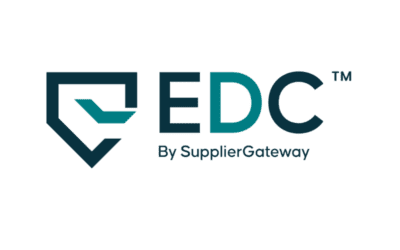Have you been struggling lately to find smaller suppliers in your area? As a procurement pro, sourcing locally is an important part of your job. But in times like these, it can feel nearly impossible. Don’t lose hope! There are still great local vendors— you just have to know where to look.
In this article, we’ll show you some tips and tricks for uncovering those hidden gems in your own backyard. You’ll learn how to tap into community connections, search industry associations, and think outside the big box. We’ll even point you to a few technology tools that make local sourcing easier than ever.
By the time you’ve finished reading, you’ll have a toolbox full of strategies to find small and local vendors even when the economy isn’t exactly booming. And you’ll feel good knowing you’re supporting businesses in your own community when it’s most needed. So grab your laptop and your little black book of contacts—it’s time to start sourcing locally again.
The Benefits of Sourcing Locally During Economic Uncertainty
Sourcing supplies locally during tough economic times offers some compelling benefits.
Support Small Businesses
Local suppliers are the backbone of your community. By choosing small, independent companies in your area, you’re helping them weather the storm and come out intact on the other side. Every order makes a difference.
Reduce Environmental Impact
Localized supply chains mean fewer miles traveled and less pollution. And because small suppliers often use sustainable, eco-friendly practices, you can feel good about the impact of your purchases.
Meet Customer Demand
Consumers today want to buy from businesses that support their local economy and share their values. Localizing your supply chain is a great way to boost your brand and attract new customers. People will appreciate knowing their money is staying in the community.
Discover Unique Products
Small, locally-owned companies are breeding grounds for innovation. You’ll find unique, handcrafted goods and custom products unavailable from large suppliers. Offering one-of-a-kind items is a point of differentiation that sets you apart.
Build a Resilient Network
Diversifying your supply base by sourcing from local vendors in different industries helps minimize risk. If one supplier faces hardship, you have alternatives to fall back on. Nurturing these relationships over time leads to a robust, collaborative network.
While global supply chains certainly have a place, localizing your sourcing, even in part, yields benefits for both your business and community. Every dollar you spend locally multiplies, creating opportunities that strengthen your regional economy from the inside out.
Where to Find Small and Diverse Suppliers in Your Area
As a procurement pro, finding small and diverse suppliers in your local area is key to supporting your community. Where can you look to uncover these gems?
ANA Supplier Diversity Directory
The ANA has curated a list of certified diverse suppliers in the marketing/advertising industry. Search by location, diversity certification, and business classification. Many of these companies are small, local organizations looking to do business with other businesses in their area.
State and Local Supplier Diversity Databases
Most states and local municipalities offer a directory of small and diverse suppliers within their borders. For example, the Virginia Department of Small Business and Supplier Diversity hosts a searchable directory of over 16,000 small and diverse suppliers. You can filter by city or county to find suppliers right in your community. These state databases are an excellent resource for sourcing locally. You can also look into local area chambers of commerce and see if you can access their member list.
By tapping into these supplier diversity resources, you’ll uncover small enterprises in your city or county that would value your business. Reach out and start building relationships – your local economy will thank you, and you may find unique, specialized suppliers you never knew existed in your own backyard!
Corporate Memberships and Subscriptions
WEBENC, NMSDC, NAWBO, Disability:IN, and NGLCC all have databases of suppliers they have certified. You can access these databases with corporate memberships/sponsorships through each organization. You can filter these databases to find diverse businesses to work within your area.
Diversity Information Resources offers an online sourcing portal. The portal’s database includes small, minority, women, veteran, service-disabled veteran, LGBT, HUBZon,e and disability-owned business enterprises certified by NMSDC, WBENC, NWBOC, CPUC, 8(a), NGLCC, Disability: IN, WEConnect, CAMSC, State and City Agencies, MSDUK and more.
SupplierGateway’s Supplier Diversity Platform comes equipped with a sourcing database that contains five million+ suppliers. You can filter your supplier searches by locality, business size, certification type, industry, NAICS codes, and more. The sourcing tool is only a part of SupplierGateway’s robust Supplier Diversity Platform, which allows you to track your tier-1 and tier-2 diversity spend, report on local economic impact, and help you find local and diverse suppliers you’re already working with.
Building Relationships With Local Businesses
Building strong relationships with local suppliers and small businesses is key to securing the partnerships you need during tough economic times. As a procurement pro, here are some tips for connecting with these valuable contacts:
Reach Out and Offer Help
Don’t just call local companies when you need something from them. Routinely checking in to see if they need help or advice is a great way to build goodwill. Ask open-ended questions about how their business is doing and if there’s any way you might be able to assist or provide value. Your willingness to help for the sake of helping can go a long way.
Meet in Person When Possible
While phone calls and emails have their place, face-to-face meetings are ideal for forming personal connections. See if you can schedule quick coffee meetings or walk-throughs of suppliers’ operations. Putting a face to the name and seeing their business firsthand helps to build rapport and trust. These in-person interactions allow you to express your genuine interest in their success.
Ask for Feedback
Don’t just assume you have a good working relationship with a supplier or local business. Ask them directly how you and your company can support them better. Let them know you value their input and are open to constructive criticism. The feedback you receive can help strengthen your partnership and ensure their needs are being met.
Stay in Regular Contact
Out of sight, out of mind—this saying applies to business relationships, too. While you don’t need to communicate with suppliers daily, do reach out regularly, and not just when you have a request or issue to discuss. Send a quick email to say hello, share an article of common interest, or just reiterate your desire to continue building a long-term working relationship. Making yourself visible and available on an ongoing basis will keep connections with local businesses alive and well.
Fostering close-knit ties with small suppliers in your area leads to partnerships that benefit both parties. With the right mindset and consistent effort, you can establish valuable support networks that will serve your company in the future.
Negotiating Win-Win Deals With Small Suppliers
As a procurement pro, finding and negotiating with small local suppliers during tough economic times requires finesse and understanding. Your goal should be creating win-win deals that help sustain these vendors through the downturn.
Build Trust First
Reach out to introduce yourself and your company, explaining you want to source locally. Express interest in learning about their business and products. This demonstrates you value them, building rapport and trust which are essential before negotiating.
Do Your Homework
Research market rates for goods and services to determine fair pricing. Check the supplier’s website and social media to understand their business. Come prepared with a range of acceptable prices for discussion. The supplier will appreciate your knowledge and preparation.
Focus on Partnership
Frame the discussion around forging a mutually beneficial partnership, not just a transactional relationship. Explain how their business aligns with your company’s goals and priorities, like supporting small local companies. Discuss ways you might collaborate and promote each other to generate goodwill and long-term success.
Be Flexible and Creative
Small suppliers are often less flexible on pricing and terms, so you may have to get creative to get the deal you’re looking for. Look for non-monetary ways to create value in exchange for more flexibility from them. Offer introductions to other buyers, promotion of their business on your website or social media, or mentoring. You might suggest exclusivity or preferred supplier status for lower prices and inventory priority. Offering a market opportunity that is too good to pass up can often make inflexible terms more pliable.
Stay in Touch
Once you’ve negotiated a deal, continue communicating to ensure the partnership remains strong. Ask for feedback, check on any issues, and revisit the relationship as economic conditions evolve. Your ongoing support and dialog will build loyalty and position you as a preferred customer when times improve.
With the right mindset and tactics, you can negotiate win-win deals with small local suppliers despite the challenges of an economic downturn. Focusing on building a true partnership will lead to a sustainable relationship that benefits you both now and in the long run.
Ensuring Quality and Reliability From Smaller Vendors
As a procurement pro, finding new suppliers during tough economic times requires extra diligence to ensure quality and reliability. While cost is important, the cheapest option isn’t always the best choice if it means sacrificing consistency or service.
Perform Thorough Vetting
Do your homework on potential new suppliers. Check their references and financial stability. Make sure they can deliver what they promise before signing a contract. It’s best to start small to test the waters. Place a small initial order to evaluate them on key metrics like on-time delivery, responsiveness, and product quality before committing to a long-term relationship.
Monitor Closely After Onboarding
Once you’ve onboarded a new supplier, keep a close eye on them. Review the quality of their goods and services regularly. Provide feedback to address any issues right away. It’s much easier to correct problems early. If a supplier continues to underperform after you’ve given them a chance to improve, you may need to part ways to avoid disruptions to your own business.
Help Small Vendors Succeed
While monitoring suppliers closely is important, so is offering support. Smaller companies may need more hand-holding as they get started. Be willing to show them the ropes and provide guidance to meet your standards. A good long-term partnership is mutually beneficial. If you invest in helping a promising small supplier improve, it can pay off through a reliable, affordable source of quality goods and services.
Following best practices for supplier management and maintaining open communication is key. Though it requires time and effort up front, ensuring consistent quality and service from all your vendors, big and small, leads to greater stability and satisfaction in the long run. By taking the time to find and develop the right suppliers, you’ll build a resilient supply chain to weather any economic storm.
Conclusion
You now have some solid tips for seeking out those small local suppliers in your area even when times are tough. While it may require some extra legwork, the rewards for your company and community can be huge. Not only will you find innovative and agile partners, but you’ll be supporting the economic recovery of businesses right in your own backyard.
So start making those calls, sending emails, attending virtual meetups, and getting the word out that you want to buy locally. The suppliers are out there, eager for your business and ready to build a long-term mutually beneficial relationship. And when we all come out the other side of this challenging time, you’ll have a robust network of trusted local vendors you can continue to tap into for years to come. The effort you put in now will pay off in so many ways down the road. So roll up your sleeves, pound the pavement, and start discovering all the hometown gems in your supplier base. Your company and community will thank you for it.












